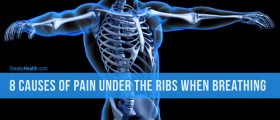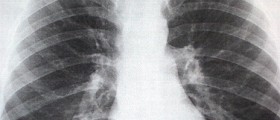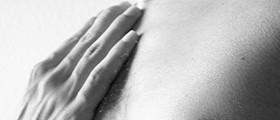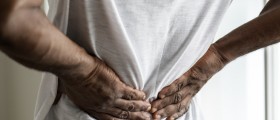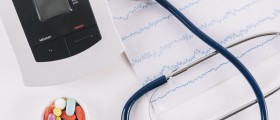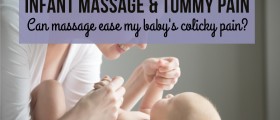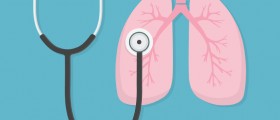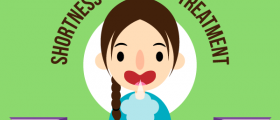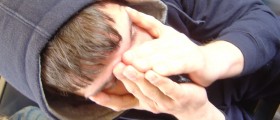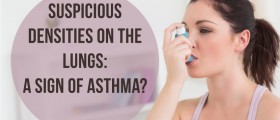Maybe you should go to the doctor if you think it is something serious. If it not, it should work its way out, but it sounds like it has been going on for a while. If you regular Dr. can't help, maybe it is time to see someone else for another opinion. my friend had been with the same doctor for quite some time, but when she had issues for over a year, and they could not figure out what was wrong, she went to someone else at a different clinic and he found the problem right away.
Loading...
see i am a girl and 14 my gp done the same and they still dont know wht is up with me and my pain is on the right side and goes to the left and then up to my cheast and it hurt more when i move and try to sleep and because of that i cant sleep and it hurts so much i cant eat so wht do i do xx ??????????
Loading...
Costochondritis ...It is typical to experience pain in the second to fifth ribs, but the sixth rib can also be affected. The rib pain is stabbing, aching or burning. The pain can come and go, some days better than others. The pain can also radiate engaging the neck and shoulders. With me, it affects my diaphragm bone and gives me tenderness in the epigastric (upper central abdomen) area of my upper abdomen. Many rib discomforts can be treated at home with rest and ice, for at least the first day or so. After 24 to 48 hours, consider hot showers or applying a heating pad to relax the muscles. If you can take aspirin or ibuprofen to relieve pain and inflammation. Having stomach issues to use acetaminophen, which helped with the pain, but doesn't really reduce inflammation. If the pain unbearable some doctors treat you with a short course of corticosteroids like prednisone or Medrol (methylprednisolone) tablets.
Loading...
I too have had problems with sharp pains under my right ribs. It started after a couple days of real hard manual labor at work. I thought it was caused by that. It has been over a week now and has not improved at all. After reading several of the posts here I took a real deep breath (hurt like hell) like some has suggested. I felt a pop in my rib area and now the pain is almost entirely gone....real weird.....but worth it!
Loading...
I've been getting this too. Had a sharp pain under my right rib cage for 2 days now. It came on slowly. This has happened me 3 or 4 times now, the last time was a few weeks ago, I have no idea what causes it. Right now it hurts pretty bad to breath. The pain right now is just under my right rib cage but it occasionally moves to my right shoulder and central chest. I'm hoping its a collapsed lung, rather than a liver or gallbladder problem. I'll try taking a real deep breath like the commenter above suggested.
Loading...
Loading...
Precordial Catch Syndrome (PCS), also known as Texidor's Twinge, is a common cause of chest pain in children and adolescents. It also occurs, though less frequently, in adults. PCS manifests itself as a very intense, sharp pain, typically at the left side of the chest, generally in the cartilage between the bones of the sternum and rib cage, which is worse when taking breaths. Patients often think that they are having a heart attack which causes them to panic. This pain typically lasts from 2 or 3 seconds to a few minutes, though, in some cases, they can persist for up to 30 minutes. The frequency of episodes varies from patient to patient; sometimes occurring daily with multiple episodes each day, or on a less frequent basis with weeks, months, or even years between episodes. On rare occasions, breathing in or out suddenly will cause a small popping or cracking sensation in the chest, which results in the pain going away. In most cases the pain is resolved quickly and completely, and medication is not needed for the pain to subside. There is no known treatment or cure for PCS.
-------------------------------------------------------------------------------------------------------------------------------
WEBSITE 2:
The most obvious symptom of Precordial Catch Syndrome is chest pain localized on either the left or ride side of the chest. This chest pain is often extreme in nature but usually only lasts from half a minute to three minutes. Deep breathing can also result in a popping sensation, after which the pain seems to immediately dissipate.
During an episode, the affected individual may be unable to move without feeling pain in the chest area. There may also be difficultly with breathing deeply. Therefore, many individuals take short, shallow breaths until the pain has been relieved.
The occurrence of these symptoms can vary greatly from individual to individual. Some people may experience this condition on a daily basis or even several times a day. Meanwhile, others may experience it weekly, monthly or sporadically throughout the year. Currently, doctors are unsure if PCS has any triggers but episodes may be related to certain movements, activities, posture or irregular breathing.
-------------------------------------------------------------------------------------------------------------------------------
WEBSITE 3:
PCS has consistent characteristics. Its symptoms begin with a sudden onset of anterior chest pain on the left side of the chest. The pain is localised and does not radiate like heart attack pain typically does. Breathing in, and sometimes breathing out, often intensifies the pain. Typically this causes the patient to freeze in place and breathe shallowly until the episode passes. Episodes typically last a couple of seconds to three minutes. The frequency of episodes varies by patient, sometimes occurring daily, multiple episodes each day, or years between episodes.
Although deep inhalation during a PCS attack will likely cause an increase in pain, many have found that forcing themselves to breathe as deeply as possible will result in a "popping" or "ripping" sensation which quickly and completely resolves the PCS episode.
PCS episodes happen most often while sitting or lying down, and being inactive.
Causes:
It is speculated that it could be caused by the pinching of a nerve and may be due to spasm of intercostal muscles fibers. There is also a correlation of PCS to stress and anxiety. PCS is often seen to occur during rest or a sudden change in posture.
Loading...
WEBSITE 1: Precordial Catch Syndrome (PCS), also known as Texidor's Twinge, is a common cause of chest pain in children and adolescents. It also occurs, though less frequently, in adults. PCS manifests itself as a very intense, sharp pain, typically at the left side of the chest, generally in the cartilage between the bones of the sternum and rib cage, which is worse when taking breaths. Patients often think that they are having a heart attack which causes them to panic. This pain typically lasts from 2 or 3 seconds to a few minutes, though, in some cases, they can persist for up to 30 minutes. The frequency of episodes varies from patient to patient; sometimes occurring daily with multiple episodes each day, or on a less frequent basis with weeks, months, or even years between episodes. On rare occasions, breathing in or out suddenly will cause a small popping or cracking sensation in the chest, which results in the pain going away. In most cases the pain is resolved quickly and completely, and medication is not needed for the pain to subside. There is no known treatment or cure for PCS.
WEBSITE 2: The most obvious symptom of Precordial Catch Syndrome is chest pain localized on either the left or ride side of the chest. This chest pain is often extreme in nature but usually only lasts from half a minute to three minutes. Deep breathing can also result in a popping sensation, after which the pain seems to immediately dissipate. During an episode, the affected individual may be unable to move without feeling pain in the chest area. There may also be difficultly with breathing deeply. Therefore, many individuals take short, shallow breaths until the pain has been relieved. The occurrence of these symptoms can vary greatly from individual to individual. Some people may experience this condition on a daily basis or even several times a day. Meanwhile, others may experience it weekly, monthly or sporadically throughout the year. Currently, doctors are unsure if PCS has any triggers but episodes may be related to certain movements, activities, posture or irregular breathing.
WEBSITE 3: PCS has consistent characteristics. Its symptoms begin with a sudden onset of anterior chest pain on the left side of the chest. The pain is localised and does not radiate like heart attack pain typically does. Breathing in, and sometimes breathing out, often intensifies the pain. Typically this causes the patient to freeze in place and breathe shallowly until the episode passes. Episodes typically last a couple of seconds to three minutes. The frequency of episodes varies by patient, sometimes occurring daily, multiple episodes each day, or years between episodes. Although deep inhalation during a PCS attack will likely cause an increase in pain, many have found that forcing themselves to breathe as deeply as possible will result in a "popping" or "ripping" sensation which quickly and completely resolves the PCS episode. PCS episodes happen most often while sitting or lying down, and being inactive. Causes: It is speculated that it could be caused by the pinching of a nerve and may be due to spasm of intercostal muscles fibers. There is also a correlation of PCS to stress and anxiety. PCS is often seen to occur during rest or a sudden change in posture.
Loading...
That's exactly what I have been experiencing for several days now, after I had a D&C for miscarriage. Was on doxycline and wondering if that messed up my digestive tract. Stabbing pain on right side under rib cage and also pain (feels like a knot) in my right collarbone neck region. When I breath, both areas hurt at the same time. Strangely enough, when I press either my side or neck, I burp. Had X-ray and ultrasound -- both were negative. Doctor is unclear as to what is causing it and thinks it could be a spasm in the gut. Now taking Bella Donna -- an anti-spasm prescriptive drug, which has taken away the stabbing pain, but still in discomfort. Did you ever find out what has caused your pain and what has taken it away?
Loading...
I too have this pain in the same area, right side of body, just below the rib cage. We're all going to die!
Loading...
Did you also experience the 'pop' when taking a deep enough breath? After which it was relieved for a while?? Which other symptoms did you feel?? Where exactly was the pain? Mine approx an inch below my right nipple.
It hurts to take a deep breath, but when I take a deep enough breath there is a 'pop' then it doesn't hurt anymore to take a deep breath. There is otherwise absolutely no pain when breathing normally, nor a feeling of shortness of breath. The only other way it hurts is if I twist my torso a certain way. Did you also find that to be the case?
I went to the doctor and was diagnosed with Costochondritis. Also had an X Ray to see if there was anything else, and it came back clean, but I still fear it may be a Pulmonary Embolism and not nec Costochondritis. The reason I think this is because prior to this pain in my ribs my left glute hurt for 2 days, so I wonder if it was a clot from my left leg that went to my lungs. But at the same time, I don't have any other signs of PE, such as:
* Shortness of breath that may occur suddenly. (in my case It hurts to take a deep breath, but I can otherwise breathe normally)
*Rapid heart rate. (mine is approx 60-70BPM
Rapid breathing. (no)
*Sweating. (maybe a tiny little bit in my right arm pit)
*Anxiety. (Yeah, but not higher than usual for me)
*Coughing up blood or pink, foamy mucus. (nope)
*Fainting. (no)
Heart palpitations. (My heart does actually skip a beat once in a while, but I've had this for a long time already)
*Signs of shock. (no)
Did you also have these classic signs of a clot in the lungs?
Loading...





